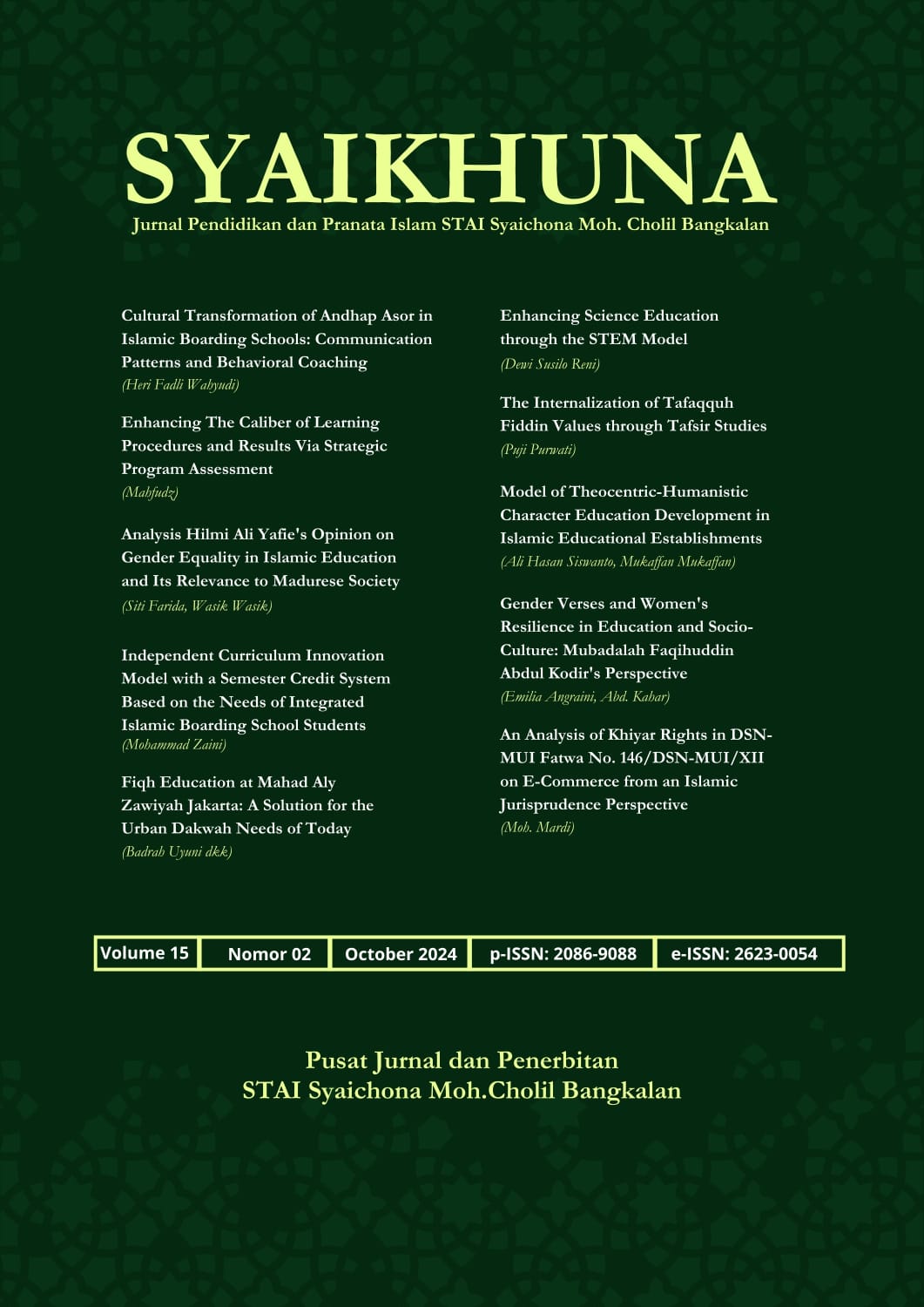An Analysis of Khiyar Rights in DSN-MUI Fatwa No. 146/DSN-MUI/XII on E-Commerce from an Islamic Jurisprudence Perspective
DOI:
https://doi.org/10.62730/syaikhuna.v15i02.7617Keywords:
Khiyar rights, DSN-MUI Fatwa No. 146, e-commerce, fiqh muamalah, Islamic jurisprudence.Abstract
This study examines the application of khiyar rights, specifically as outlined in DSN-MUI Fatwa No. 146/DSN-MUI/XII, on e-commerce transactions from the perspective of Islamic jurisprudence. Consumer dissatisfaction and ethical challenges have emerged as modern digital transactions through online shops become more prevalent. These concerns underline the necessity for a Sharia-compliant framework to safeguard buyers and sellers. Utilizing a qualitative descriptive approach and content analysis, this research delves into primary sources such as the Qur'an, hadith, and the fatwa, supplemented by secondary literature, including journals and scholarly works. The analysis focuses on three types of khiyar—khiyar majlis, khiyar syarat, and khiyar aib—contrasting their treatment in the four major Islamic schools of thought: Syafi'iyah, Hanabilah, Hanafiyah, and Malikiyah. Findings reveal that DSN-MUI Fatwa No. 146 aligns closely with the Syafi'iyah and Hanabilah perspectives by validating khiyar majlis and khiyar aib within the digital context, while still leaving khiyar syarat underexplored. The study underscores the importance of expanding the fatwa to provide a comprehensive framework for all forms of khiyar, addressing procedural specifics for online transactions. This research contributes to the discourse on integrating traditional Islamic legal principles into contemporary economic practices, fostering fairness and adherence to Sharia in digital marketplaces. Further efforts by DSN-MUI are recommended to enhance clarity and implementation standards for khiyar rights in e-commerce.Downloads
Published
2024-10-30
How to Cite
Mardi, M. . (2024). An Analysis of Khiyar Rights in DSN-MUI Fatwa No. 146/DSN-MUI/XII on E-Commerce from an Islamic Jurisprudence Perspective. Syaikhuna: Jurnal Pendidikan Dan Pranata Islam, 15(02), 271–283. https://doi.org/10.62730/syaikhuna.v15i02.7617
Issue
Section
Articles
License
Copyright (c) 2024 Moh Mardi

This work is licensed under a Creative Commons Attribution 4.0 International License.





